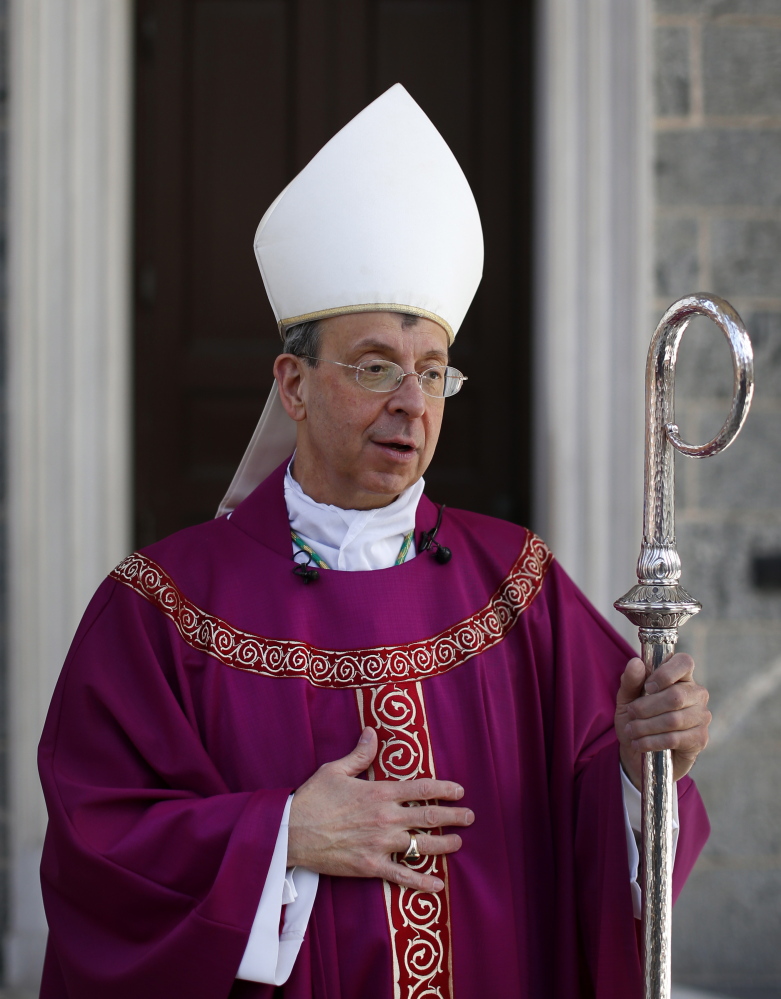NEW YORK — Conservative faith leaders have made religious liberty a rallying cry as gay marriage has spread throughout the states. And though stunned by Indiana’s retreat from a religious freedom law after an uproar over same-sex marriage, they vow not to give up.
Evangelical and Roman Catholic leaders say they will continue their push for conscience protections from laws they consider immoral – a drive that gained momentum several years ago when they saw their beliefs on marriage, abortion and other issues increasingly in the minority.
Archbishop William Lori of Baltimore, who leads the religious liberty committee of the U.S. Conference of Catholic Bishops, said the bishops’ goals have not changed following the uproar this week in Indiana and to a lesser degree Arkansas.
“Individual or family-owned businesses as well as religious institutions should have the freedom to serve others consistent with their faith,” Lori said in a statement.
Similarly, the Rev. Russell Moore, who leads the public policy arm of the Southern Baptist Convention, said, “We have to continue to press for religious liberty for everybody regardless of how unpopular that concept might be.”
A decade ago, the Becket Fund for Religious Liberty, a public interest law firm in Washington, convened legal scholars from across the ideological divide on gay marriage to examine potential areas where religious freedom and gay rights might clash.
First Amendment protections for worship are secure. But complications arise when faith-affiliated organizations try to maintain their religious identity even as employers and providers of services to the public.
The 2005 Becket meeting generated a policy paper that became influential among church-state experts and religious leaders closely watching the issue. Four years later, a coalition of evangelical, Roman Catholic and Orthodox Christian leaders unveiled the “Manhattan Declaration: The Call of Christian Conscience.” It pledged civil disobedience to government laws they said would compel them to violate their views.
“Those folks who wanted to clutch onto these laws as a way to hold onto the past or stave off gay rights misunderstood what these laws would do,” said Robin Fretwell Wilson, a family law specialist at the University of Illinois Law School.
Wilson advised legislators in Utah and elsewhere on a compromise enacted last month that combined religious exemptions with civil rights protections for gays.
Send questions/comments to the editors.



Success. Please wait for the page to reload. If the page does not reload within 5 seconds, please refresh the page.
Enter your email and password to access comments.
Hi, to comment on stories you must . This profile is in addition to your subscription and website login.
Already have a commenting profile? .
Invalid username/password.
Please check your email to confirm and complete your registration.
Only subscribers are eligible to post comments. Please subscribe or login first for digital access. Here’s why.
Use the form below to reset your password. When you've submitted your account email, we will send an email with a reset code.